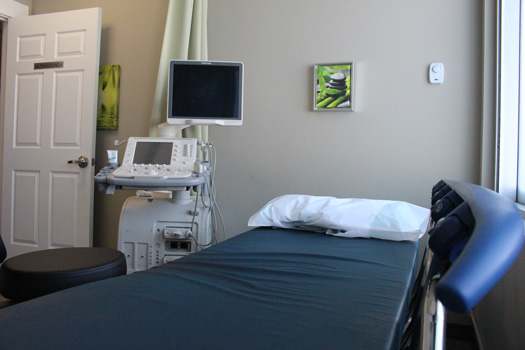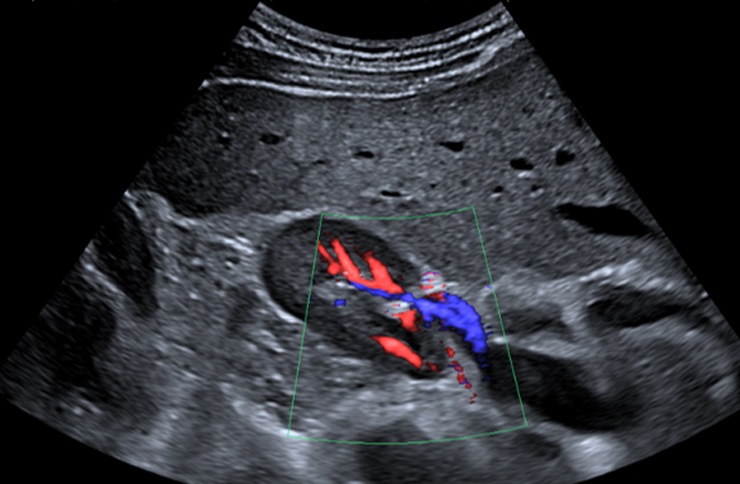Renal Ultrasound
A renal ultrasound is a non-invasive exam that uses high-frequency sound waves to assess the kidneys, ureters, and bladder. The scan provides information about bladder draining, post-void residual, the position of the kidneys, and urine flow through the ureters.
Reasons for a Renal Ultrasound
Your doctor may refer you for a renal ultrasound to assess urine flow or the size, position, and shape of the kidneys, ureters, or bladder. Sometimes the information gathered from a renal ultrasound is used to guide other procedures, such as conducting a biopsy, draining fluid from a cyst, or placing a drainage tube.
Additionally, renal ultrasounds may be ordered to investigate:
- Abscess
- Urinary tract infection (UTI)
- Fluid collection
- Presence of obstructions (stones)
- Prostate size
- Bladder wall
- Diverticula of the bladder
- Kidney evaluation after transplant
What Happens During My Renal Ultrasound?
- The sonographer may ask you to change into a gown, depending on which organ we are examining.
- Alternatively, the sonographer may arrange your clothing to expose the area of interest so they can apply ultrasound gel.
- A warm, hypoallergenic ultrasound gel will be applied between your hipbones and below your belly button.
- The sonographer will move the transducer (probe) around the area of interest, gathering images of your organs.
- The sonographer will apply moderate pressure with the probe, which may be momentarily uncomfortable but should not cause pain.
- Please inform your sonographer of any discomfort.
- You may be asked to change position – lying on your side or sitting – or foam blocks may be used to elevate certain limbs. This is done to move your organs into a better position for imaging.
- You may be asked to empty your bladder. Then the sonographer will take more images to measure the volume of remaining urine.
- After the sonographer has captured the images, you are free to leave.
- One of our radiologists will review the images and send a detailed report to your doctor, usually within one business day.
Important Notes
Since a renal ultrasound focuses on bladder draining, post-void residual, urine flow through the ureters, etc., it is extremely important that you prepare correctly and drink water before your exam. Please visit our exam prep page for specific instructions relating to renal ultrasound.
Orientation
During a renal ultrasound, you will be on a bed, usually on your back. You may be asked to change position during your scan. Positions include sitting and lying on your side. Foam blocks may be used to elevate limbs for better imaging.
Cost
If you have an Alberta Health Care card or valid health care card from out of province, there is no cost for a renal ultrasound (except in Quebec).
Duration
A renal ultrasound scan lasts approximately 30 minutes.
Exam Preparation
Being prepared for your renal ultrasound helps us take the best possible images for diagnosis. Please visit our exam prep page for more instructions specific to renal ultrasound.



